Items That Will Disappear After A Disaster
Do you sometimes think about the items that will disappear after a disaster in your city? Sometimes, we concentrate on water, food, cooking devices, flashlights, and batteries, which certainly makes sense. Maybe on other days, bartering items or items for feminine hygiene take priority. Emergency Radio, Goal Zero Crush Light, Solar Flashlight, Flashlights
If you’re like me, I don’t dwell on what I don’t have; I plan for the emergency items I think I’ll need and write them down. It’s all about preparing for what we need to survive the common disasters and emergencies in our area. We don’t want to be caught off guard, right? Emergency Items That Will Disappear First
My list is pretty extensive. You should already have most of these items in your emergency preparation stockpile. With this list, you can double-check your inventory and fill in as needed BEFORE the disaster.
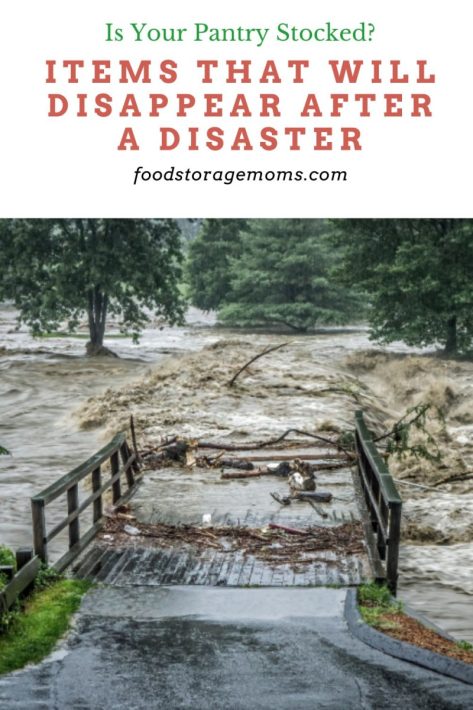
Today, I thought I would remind everyone of things that will surely disappear after a disaster. We know we have neighbors, family, or friends who have not planned for an emergency. This is too bad because the rest of us can’t or won’t be able to care for all the others who didn’t prepare. I’m updating this post from April 2019, and it’s critical to remind ourselves what items will disappear after a disaster.
No Deliveries
Maybe those who didn’t prepare are counting on the government to deliver food and water to their door; good luck with that idea. They may not picture empty grocery store shelves either. Those shelves will be empty within 24-36 hours after an unforeseen emergency. Whatever they have in their house this minute may be all they have for days, weeks, or months in the most extreme scenario.
We’ve seen how our lives have been turned upside down in the past few years due to challenges in the global supply chain. With the issues in Russia and Ukraine and more recently in Israel, many of those supply chain problems still exist.
If you’ve been following my blog for years, I assume you are prepared because you get it and have a vision of what’s most likely to happen. I promise this mindset will get you through because you understand what can happen. We can sleep at night because we know we have water, food, and the things we need when the stores are empty. We can cook from scratch and survive, and we can do this because we’ve practiced and tested our plans and skills.
Today, I decided we could help each other by looking at my list of items that would disappear from the grocery stores within hours of a disaster. I’m breaking them into sections. Let’s get started.
Items That Will Disappear
Water/Drinks
- Water – since water is so critical, cases of water often are the first to disappear. Yes, we need a lot of water, depending on the size of our family.
- Kool-Aid Flavoring Packets
- Beer/Alcohol
- Pedialyte drinks or powder
- Coffee
- Tea
- Soda
- Juice
- Milk
- Chocolate milk
Ready To Eat Food
- Chili
- Beef Stew
- Spaghettios
- Soups
- Bread
- Crackers
- Hamburger buns
- Hot dog buns
- Tortillas
- Dinner rolls
- Biscuits
- Frozen waffles
- Frozen pancakes
- Frozen foil dinners
Kitchen Paper and Plastic Products
- Paper plates
- Paper cups
- Paper bowls
- Plastic silverware (utensils)
- Foil
- Paper Towels
Cooking Supplies
- Dutch ovens
- Cast iron pans
- Griddles
- Pancake turners
- Handcrank beaters
- Portable Stove with fuel
- Sun Oven
- Canning jars and lids
- Water bath canner
- Pressure Canner
- Non-electric pressure cooker
Pantry Items: Non-perishables Are The Most Critical
- Beans
- Rice
- Soups
- White bread flour
- Yeast
- Crackers
- Peanut butter
- Jams and jelly
- Powdered eggs
- Instant milk
- Popcorn
- Dehydrated onions
- Lemon juice
- Cocoa
- Garlic
- Raisins
- Spices
- Tortillas
- Chicken broth
- Olive oil/coconut oil
- Dehydrated or fresh potatoes
- Pasta
- Tomato paste or flakes
- Salt
- Sugar
- Honey
- Vinegar
- Baking soda
- Baking powder
- Cream of tartar
- Canned meat
- Canned fruit
- Canned vegetables
- Wheat
- Dehydrated carrots and vegetables
- Salsa and green chilies
- Spaghetti sauce
- Fruit
- Vegetables
- Oatmeal
- Cornstarch
Fuel
- Propane
- Wood
- Butane
- Charcoal
- Lump Charcoal
- Pine cones
- Kerosene
- Gasoline stabilized with Pri-G or StaBil
Flashlights
- Flashlights and batteries
- Solar flashlights
- Lanterns with batteries
- Solar lanterns
- Yard solar lights
Garbage Bags
- 33-gallon garbage bags – heavy duty
- 10-gallon garbage bags
- 4-gallon garbage bags
- Gallon-size baggies
- Quart-size baggies
- Sandwich baggies
Garden Supplies
- Garden Seeds
- Garden fertilizer
- Garden Compost
- Garden Soil
- Rake
- Shovel
- Garden gloves
- Tomato Cages
Pet Supplies
- Dog Food
- Cat Food
- Pet Food
- Pet leashes/collars
- Kennels/Crates
- Kitty Litter
- Food Dishes
- Water dishes
Fire Extinguishers
Here are some interesting facts about regular fire extinguishers at home, in the garage, or the car. All fire extinguishers are labeled with specific labels as to which classification of fuel the extinguisher will be effective:
1. Class A Fires: Ordinary combustibles like paper, cloth, wood, rubber, and many plastics
2. Class B Fires: Flammable liquids like oil and gasoline, charcoal lighter, kerosene
3. Class C Fires: Energized electrical equipment like wiring or motors. Once the electricity to those is turned off, they become a Class A
4. Class D Fires: Combustible metals like aluminum, magnesium, or titanium
Fire Extinguishers and Fire Blankets
Sewing Supplies
- Thread
- Scissors
- Fabric
- Thimbles
- Needle Threader
- Tape measure
- Pins and needles
Camping Supplies
- Dutch oven
- Sleeping bags
- Portable toilets and chemicals
- Toilet Paper
- Camp Stoves
- Cooking Pans
- Matches
- Fuel Starter
- Water Filters and replacement filters: Sawyer Water Filters and Berkey Sports Bottles
- Axes, saws, drills, hammers, screwdrivers
Books (get these before a disaster)
- “Prepare Your Family For Survival”
- “Bugging In by Raymond Dean White”
- “Lights Out” by Ted Koppel
- “Medical Handbook”
First Aid Supplies/OTC Medications
- Ace Wraps: 3-inch & 4-inch
- Allergy Medicine
- Anti-Bacterial Wipes
- Antifungal Ointment
- Anti-Diarrhea
- Anti-Itch Cream
- Aleve (Naproxen)
- Alcohol: 90-100% rubbing alcohol
- Anesthetics, Lidocaine or Xylocaine
- Apple Cider
- Aspirin/Advil
- Bandage Scissors
- Band-Aids/Butterfly, Several Sizes
- Bee Sting Kit
- Benadryl, Liquid, and Chewable
- Betadine/iodine swabs
- Birth Control
- Boudreaux’s Butt Paste (check expiration dates)
- Bug Spray 100% Deet
- Burn Gel
- Calamine Lotion
- Castor Oil
- Celox, to stop bleeding
- Cold Medicine/Cough Syrup
- Contacts/Contact Cases/ Extra Glasses/Saline
- Condoms
- Cotton Balls
- Cotton Swabs
- Dental Supplies, a temporary filling, and glues
- Distilled water (for cleaning wounds)
- Dramamine (motion sickness)
- Dressings for open wounds
- Duct Tape and medical tape (all different sizes)
- Ear-Loop Masks (N-95), all sizes
- Ear Plugs
- Elastic Gauze Bandage Rolls
- Epsom Salt
- Essential Oils Book
- Eye Patches
- First-Aid Book
- First-Aid Shears
- Flashlights w/Batteries
- Floss
- Gloves (non-latex)
- Gauze Pads (sterile and non-sterile)
- Hand sanitizer
- Headlamps
- Heat packs-Heating pads-Hot water bottle
- Hemorrhoid Ointment/Suppositories
- Hemostats/Forceps
- Hydrocortisone
- Ibuprofen
- Israeli Bandages
- Mylar Blankets
- Lip balm/ ChapStick
- Lotion or Body Cream
- Magnifying Glass
- Menstrual Pads and Tampons
- Mucinex
- Mucinex DM
- Motrin
- Monistat (Yeast Infections)
- Mouthwash
- Molefoam/Moleskin
- Multi-Task Knife
- Nasal Decongestant
- Nasal Spray (Afrin)
- New Skin Liquid Bandage
- Non-stick Sterile Pads
- Nystatin and Triamcinolone Acetonide
- Nail Clippers
- Neosporin (Checked the crimped end for the expiration dates)
- Orajel
- Pedialyte Powder Packets
- Petroleum Jelly
- Pepto-Bismol Chewables
- Peroxide
- Pregnancy Test
- Quick clot
- Rolled Gauze
- Scalpel blades and holders
- Scissors-regular, plus tiny sharp scissors (for removing sutures)
- Self-adhering tape 3 Coban
- Sleep-Aid Medicine
- Splinter Removal Kit
- Splints
- Soap
- Stethoscope
- Syringes, several sizes
- Sunscreen
- Surgical Face Masks (N-95 or N-100), all sizes
- Sutures, all sizes (learn how to do suturing)
- Suture needles of all sizes
- Tick Remover
- Toothbrushes/Toothpaste
- Tourniquet (for severe bleeding)
- Tucks Pads-Which Hazel
- Tweezers
- Tylenol
- Vicks VapoRub
- Zantac (Acid Reducer)
- Ziplock Bags
- VITAMINS
- B-12 Vitamins
- B-complex vitamins
- Calcium
- D-3 Vitamins
- Magnesium
- Mature Complete Multivitamin
- Omega 3 Fish Oil
- Vitamin C
- Essential Oils
Antibiotics and Other Prescriptions
- Amoxicillin
- Cipro
- Z-packs
- Keflex (Cephalexin)
- Ivermectin
- Insulin
Soap Products
- Hand soap
- Hand Sanitizer
- Laundry Detergent
- Bleach – I prefer the unscented type in case we need it for water purification
- Shampoo
- Conditioner
- Clothesline with clothespins
- Pool Shock
Cleaning Products
- Bleach
- 409 Spray
- PineSol
- Pumice stones
- Toilet bowl cleaner
- Comet/Ajax
- Window cleaner
- Dr. Bronner’s soap
- Buckets with and without lids
- Rags
- Plunger
Baby Products
- Diapers – paper or cloth
- Bottles
- Baby Wipes
- Pedialyte for babies
- Pacifiers
- Baby food
- Baby formula
- Diaper pins
Personal Hygiene
- Razors
- Toilet Paper
- Menstrual Products and other feminine hygiene items
- Toothpaste/Toothbrushes
- Shampoo
- Conditioner
- Hand Soap
- Hand Sanitizer
- Hand Cream
- Lip Balm/Chapstick
- Lotion
Lumber
- 2 by 4’s
- 4-foot by 8-foot particle board
- Nails
- Screws
Plastic Sheeting
- Plastic sheeting
- Tarps
- Duct Tape
Rodent Traps
- Rodent traps
- Mice traps
- Sticky traps
Hand Crank Radio
- Emergency radio with batteries and or crank Emergency Radio Look for one classified as NOAA capable.
Final Word
Sometimes, we need to review these lists over and over again. We may see one thing we need and others we may never use or need. We know best what our family needs. Please plan according to your particular needs. We know 99.99% of these items will disappear after a disaster. It is what it is, and this is why we prep. We can take care of ourselves. Thanks for being prepared for the unexpected. May God bless this world, Linda
Copyright Images: Flooding Houses AdobeStock_170541054 By 2mmedia, Bridge Washed Out AdobeStock_361835292 By Martin

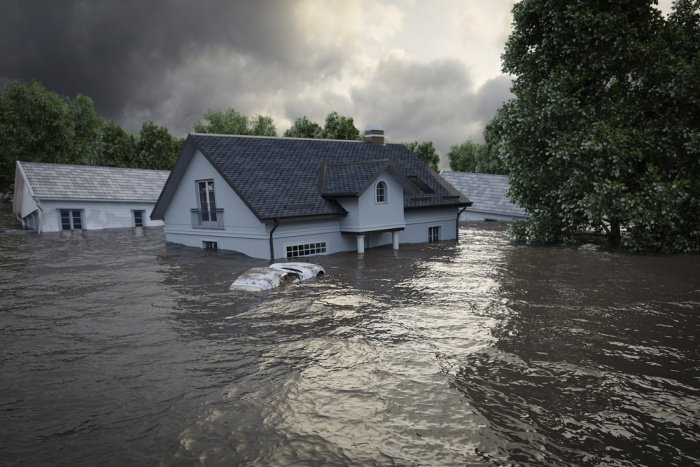

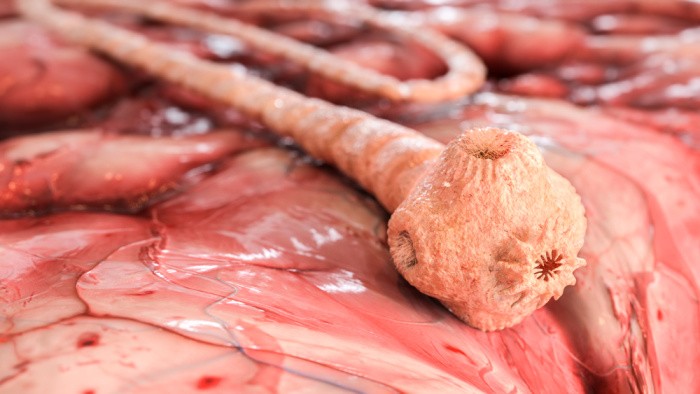
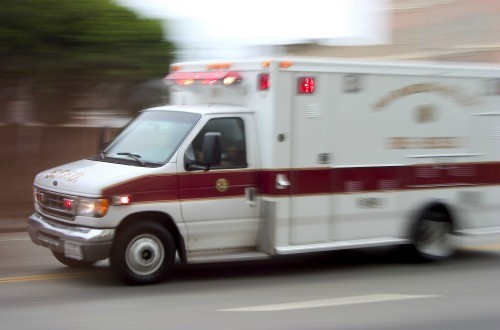

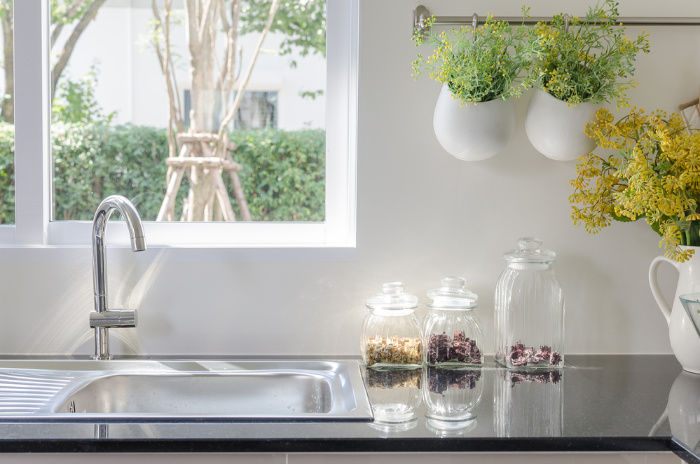
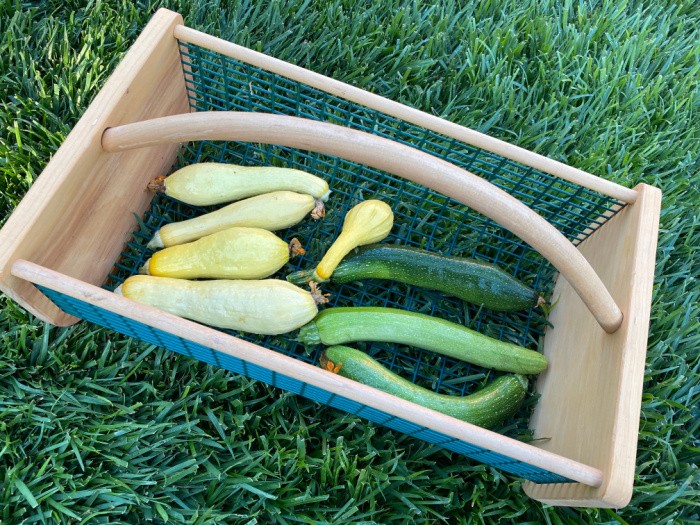
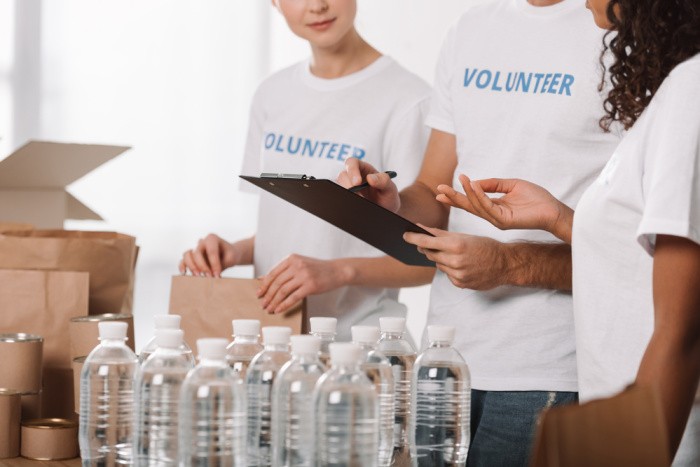
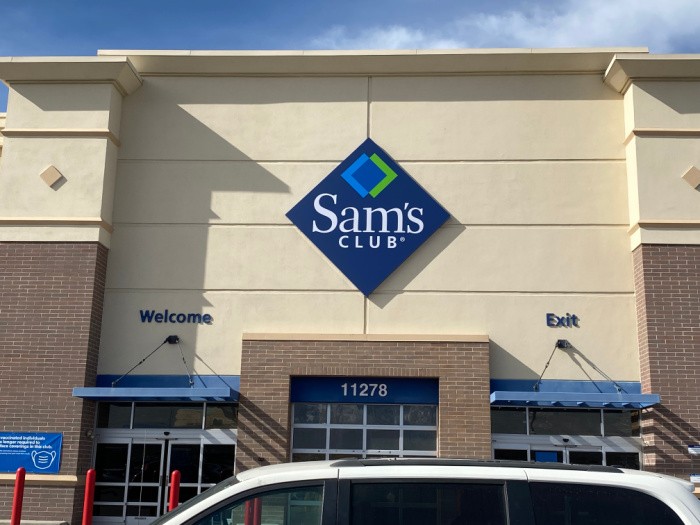




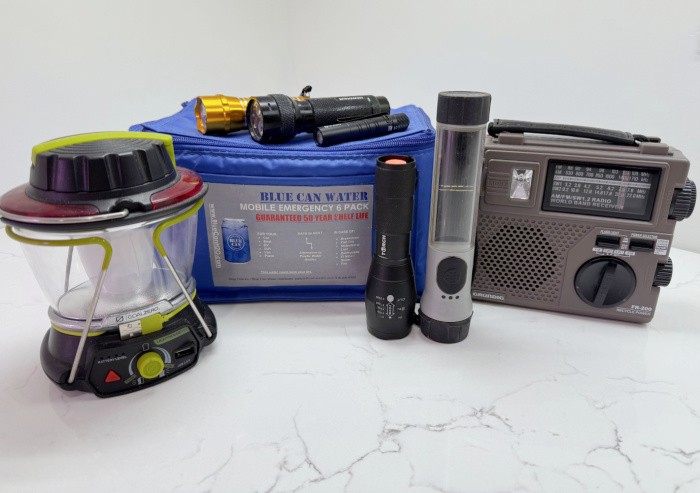
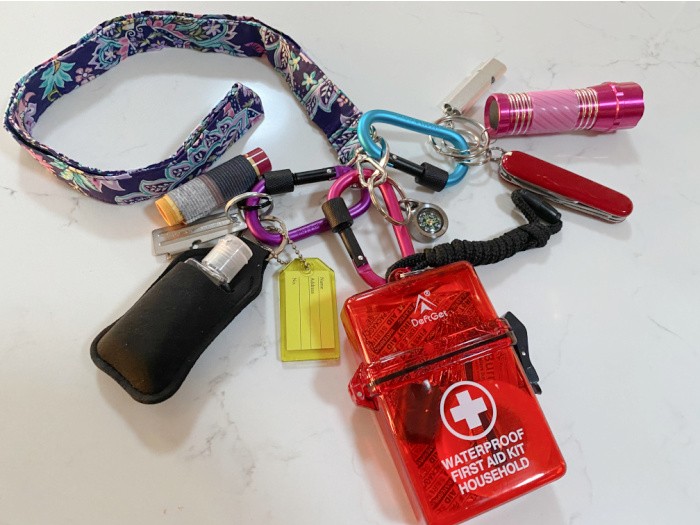





Your list is quite thorough. I would add small personal water filters like the Sawyer Mini or the Lifestraw in case of evacuations. A big filter like the Berkley is not very portable. We have Sawyer Minis for each of us plus spares. They are relatively inexpensive, about $20-22 each. The other item is extra buckets which have many uses.
Hi Liz, thanks for the reminder. I get to typing and sometimes I forget some ideas. Thank you so much! Adding them now. Linda
We give individual straw filters as gifts to our children/grandchildren along with handcranked/batteri/solar flashlight/radios that also have plug in for phone chargers. For the older grandchildren this has encouraged them to start thinking about their own preparedness needs.
Hi Donna, those are great gifts! Great comment! Linda
Hi Donna,
They are excellent gifts. I have gifted Sawyer minis, but the radio is a great idea.
Water purification is so important. I just printed off your list. I am going to be working on stocking medical supplies this month after I inventory what I already have.
Hi Liz, you are so right! We can do this, we will be prepared for the unexpected! Linda
My husband was recently put on a nebulizer. He was able to purchase online a battery operated backup that he carries with him when he goes to town or on longer jaunts. ( our area is undergoing extensive road construction, so it ups travel time significantly…. up to an hour to get to church now.) In a pinch he could use essential oils as a replacement for the treatment vials. We have been building a reserve of both his meds and quality essential oils that could help.
Hi BDN, those battery-operated backups are awesome! Wow, an hour to church!! I love essential oils, they can be used so many things. Linda
Buckets, all types and sizes especially with lids. Wash clothes and towels. Laundry supplies (soap, plunger, tubs, clothesline, clothes pins). Microfiber cloth in lieu of toilet paper. Pool shock. Cardboard boxes. Canning jars and lids, non-electric pressure cooker. Open fire grates and rotisserie. Screen mesh (windows and dehydrator). All hand tools (saws, axes, drills, nails, screws, washers, hammer, screwdriver). Matches and lighters. Lanterns (candle, kerosene and propane). Portable toilet. Solar showers, in fact any thing solar power. Activated carbon and limestone. Sand and gravel. This is just a short list.
Hi Linda, great list!!! I will add to my post when I have time. THANK YOU, Linda
Hi Linda,
You have been very detailed and I thank you for that. I plan to take each section and compare it to what I have. Filling in the gaps will not seem overwhelming if you go step by step. Plus I can add on to the list. Great article. Marcia
Hi Marcia, this is why I decided to break it out in sections. All we have to do is stock up slowly. We can do this, I promise. Linda
Hi Linda,
As always your articles are very good and thorough, however I’m wondering in the event of a big
disaster what do we do [especially people in apartments] with trash build up and human waste.
Virginia
Hi Virginia, everyone will have this problem. I have a paragraph about this in my book. We will have to dig a hole 3 feet deep to bury it and several hundred feet away from any water source. We will have to burn our trash away from any building. Yes, we need to stock a lot of 33-gallon bags. LOTS of them. We can do this, Linda
Linda, what an excellent list. One thing I’ve thought of while watching news about natural disasters our nation seems to have (in increasing numbers) is that, many folks think, “I have most of these things already”, especially the medical supply list. What they don’t realize is that injuries/illnesses will Increase after a disaster. For example, I may have a big unopened tube of Neosporin now, which I haven’t had to use since I bought it a year ago…how long would that last if people around me had minor injuries? (Same for most of the things on your list.) Yet, having just one more tube could mean the difference, maybe even between life and death.
I’ve always kept ‘extras’ but recently I went to my emergency pack of med supplies for allergy tablets (I was out, needed one badly): Gone! Checked other basics. Also Gone! My kids had been grabbing stuff from this supply, hadn’t told me that not only were things gone from the bathroom pantry but also the extras! Lol, I guess they were unknowingly rotating my supplies.
Hi Wendy, I love your comment, they have unknowingly rotated my supplies! I know what you mean when we only have one partially used tube of Neosporin. Oh, and the allergy tablets, off to the store we go. We really will go through a lot of supplies when a disaster hits. If everyone in the neighborhood would stock up we would be better off. My concern is for those who store nothing. Yikes! Linda
Hi Linda,
Ranch and feed stores are a great place to get a lot of medical supplies, and at much lower prices than at regular stores. The veterinary equivalents will work just fine. Coban (for people) is ridiculously expensive. Vet-Wrap is the same stuff for a lot less.
Ranch and feed stores (at least in my area) often also carry fish antibiotics. Interestingly, they are in the same dosages as for people and manufactured at the same plant and look just the same. (You can read more about this in Dr. Joseph Alton’s book “Alton’s Antibiotics and Infectious Disease: The Layman’s Guide to Available Antibacterials in Austere Settings.”) While they are more expensive than getting from overseas pharmacies, you don’t have to worry about a “paper trail.”
And there are a lot more antibiotics that prepared people should be storing. These really can’t be manufactured easily post-collapse, and there are some conditions they treat for which there is no known natural alternative treatment and which have a very high mortality rate without the antibiotic.
Jennifer
PrepSchoolDaily (dot blogspot dot com)
Hi Jennifer, great tip! I’m going to go check out our ranch ad feed stores. I still need to order Dr. Alton’s new book. Thanks for the reminder. Linda
Wow Linda, you really put a lot of time and effort into this post, and it is awesome. I have been prepping as some people call it for a few years, but you have several items on this list i never thought of.
Great work as usual, hope all is well…
Hi Hearl, life is so good, thank you, my friend! Thank you for your kind words, they mean so much to me. Linda
Great list. If someone needs a little push, give them a copy of “Lights Out” by Ted Koppel.
Hi Janet, I totally agree with you on that book! I love it!! Linda
I love the list breakdown. That being said, there are a few things on the list that, while they will certainly disappear from the shelves, I am not going to worry about. For example, Milk, Chocolate milk, Hamburger buns, Hot dog buns, Tortillas, Dinner rolls, Biscuits, Frozen waffles, Frozen pancakes, Frozen foil dinners, Bread, Peanut butter (I store PB2). I can make all of these things from scratch and the PB2 only requires a bit of preparation for sandwiches. I still do need to work on some of the categories, though to be as thoroughly prepared as I can – living in an apartment!! I won’t be storing lumber and that sort of thing. I just don’t have the room. I also need to be cognizant of the ability to store more than the basics due to space but I will still do well on the preps I have and will store in the very near future.
Hi Leanne, You are so prepared already my friend. My point is letting people think about all the items that will be gone after a major disaster or a major grid down. Our country needs to be prepared for more than they are right now. Some of us get it, others do not. May God bless them, they will need it. Linda
I have lived without many things in my 73 years but I’m making this statement right now: I will NOT be without coffee & toilet paper! Lol I am going to print your list & pass it on to grown grandchildren. It’s so had to get them to leave their normalcy bias behind. Thanks so much; love hearing from you.
Hi Linda, oh my gosh, I forgot to make a personal hygiene list. I just added it. LOL! Thanks for your wonderful comment! Linda
Wһen I initially commented I seem to have clicked on the -Notify me when new comments are added- checkbox and now wһeneveг a comment is added I receive 4 emails with the same comment.
Perhaps there is an easy method you arе ablе tⲟ remove me from thɑt service?
Kudos!
Hi rephases, oh my gosh, I did that once on a blog. Please unsubscribe when you receive the next email from me. Then subscribe again. Please let me know if this works. That’s not fun getting all those emails. Linda
This is a great list. One thing to note, on the tubes of Neosporin and the like. Check the crimped end of the tube or the box, usually the manufacturer puts an expiration date on the tube. That might give you an idea of how long you can store it as one or more of the ingredients may expire and hurt you. Tetracycline has a very short shelf life for example, both “human” and “animal” antibiotics. Some meds do have a 10 year life span if the research by the US Army is correct.I’m not sure if you still can find the info on the research they did as the Army was tired of tossing meds and running up their costs( IF you can believe that) but it may be helpful in determining what and how much to store and rotation dates
Hi Kathy, oh my gosh, great reminder. I just went through all my supplies and yes we must check the crimped bottoms of Neosporin and other creams. I’m going to add that to the list. Good to know about Tetracycline, I don’t store that one but my medical doctor told me the ones I stock will last 10-15 years. I stock Cipro, Keflex (Cephalexin), Amoxicillin, Zithromax (Z-packs), and Ivermectin to name a few. He has Dementia now, so I won’t be able to stock pile anymore. The FDA shut down the ability to purchase the Fish antibiotics without a prescription online now from a vet. Great comment, thank you, Linda
Linda,
One thing I might add to the fuel list for those of us that have portable generators is gasoline. Gasoline stabilized with Pri-G or StaBil is good for up to two years. While my portable generator will not power my whole house, it will power some lights and can keep our freezer operating long enough to use up the expensive meats and other things contained in it. Also, we can keep a small amount of ice in it for some cold water to drink on our 100° days.
Hi Harry, great idea, I will go add that along with the gasoline stabilizers you mentioned. Light is really important so having a small generator or a large one either way we will need gasoline. Keeping the freezer safe for a few days/weeks will be critical. Great comments as always, my friend. Adding it right now, thank you! Linda
Hi Linda, I was revisiting some of your older posts and came across this one from April 2024. I wanted to make a comment about communities outside disaster areas. I live in Western NC, just west of the Hurricane Helene devastation. We were actually supposed to get hit, so many in the community starting stocking up on gas, water and basics. We were very lucky to have been spared. But then a wonderful thing happened: before the rains stopped, people were buying supplies to send to the devastated areas (this went on for weeks, but also decimated out local supply). Unfortunately, our grocery store’s headquarters and main warehouse were heavily damaged. What little was on the shelves in our store was gone quickly, plus the store could only accept cash. Between the people buying and donating and those affected by the storm who were heading west for gas and supplies, our stores were running out. We were all also heading south into Georgia for supplies. What I am suggesting is that when a major storm event is predicted, stock up on things that you eat daily or may need for at least 30-60 days: cash, gas, toilet paper, water, bread, soups, snacks, pet food, medications (both prescription and OTC), baby food and diapers. These were the things not only being bought and donated, but were also needed by our community. Just because your community was spared does not mean you will be safe from shortages.
Hi Pam, oh my gosh, I LOVE LOVE LOVE comment. I had a friend in Florida that was affected by the storm, houses were flooded and a friend in SC that was not affected. They both stocked up beforehand, thank goodness. But my friend in Florida couldn’t get gas. She was going to fill up but had to wait until she got paid. THEN, the gas shortages started. No gas, she was on foot, literally getting groceries from nearly empty shelves. My friend in SC, her husband and a few men drove with trucks and equipment to help in Georgia as I remember. Your comment you shared helps all of us. We may not have been directly affected by the storm, but in a sense you were because the other states needed supplies as well. This is a wake up call for all of us. I thank you from the bottom of my heart for sharing. TRUTH: “stock up on things that you eat daily or may need for at least 30-60 days: cash, gas, toilet paper, water, bread, soups, snacks, pet food, medications (both prescription and OTC), baby food and diapers”, thank you, Linda